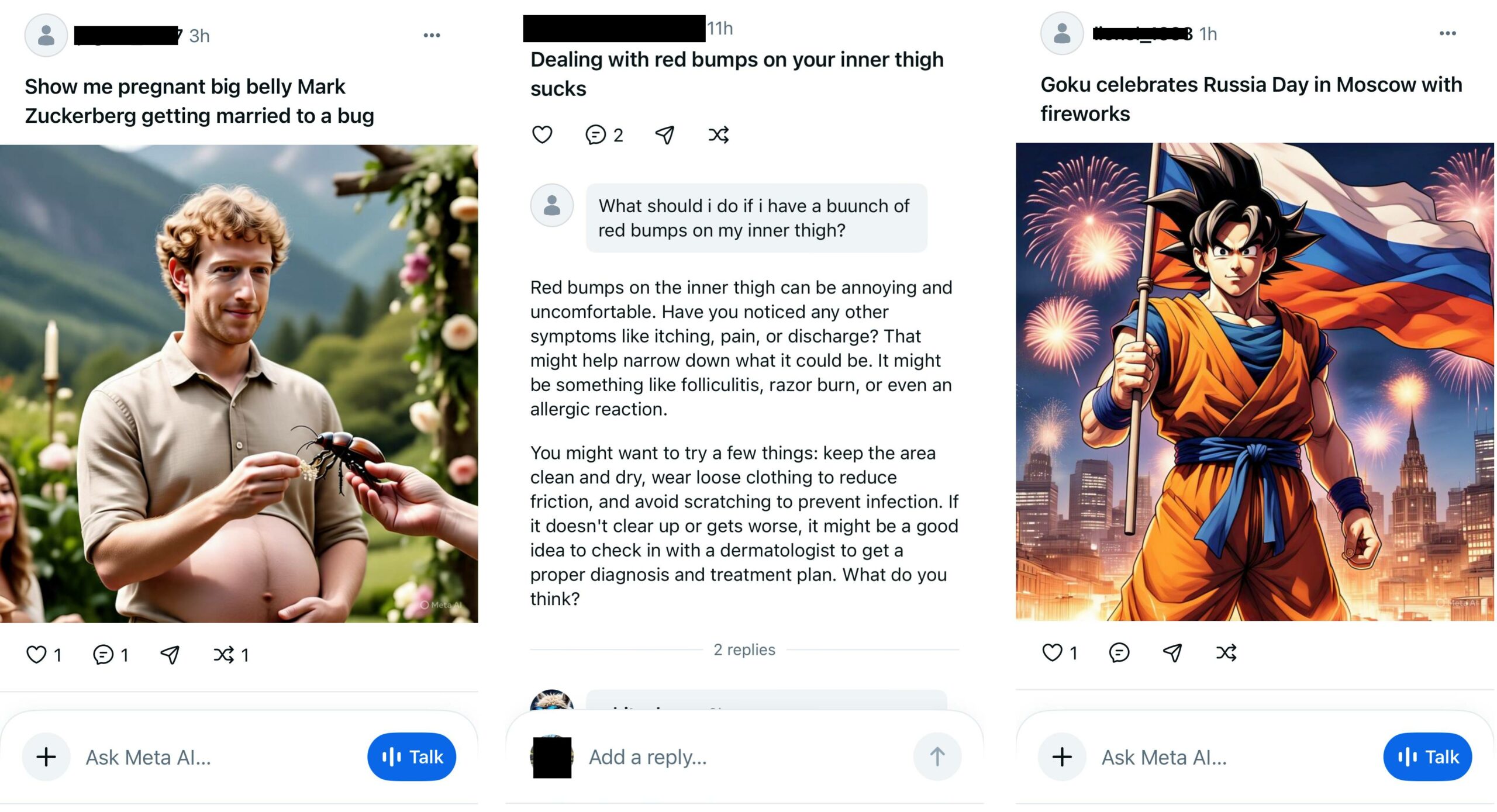It feels like the plot of a modern horror movie: your browser history has been public all along, and you’ve been oblivious. This is the current situation with Meta’s new stand-alone AI app, where numerous users are unknowingly publishing their private conversations with the chatbot. When using the app, you’re given the option to share your interactions by hitting a ‘share’ button, which previews your post before publishing. However, some users seem unaware that they’re making these text conversations, audio clips, and images publicly accessible. One morning, I stumbled upon an audio recording of a man with a Southern accent asking the AI, ‘Hey, Meta, why do some farts stink more than other farts?’ This incident, while amusing, barely scratches the surface of Meta’s privacy concerns. The Meta AI app has been used to ask for help with tax evasion, inquire about potential legal repercussions for family members involved in white-collar crimes, and even request assistance in writing character reference letters for individuals facing legal issues – with their full names included. Security expert Rachel Tobac discovered instances of people’s home addresses and sensitive court information being shared, among other private details. When contacted by TechCrunch, a Meta spokesperson declined to comment on the record.
The Privacy Nightmare Unfolds
The lack of clear privacy settings or notifications about where the information is being posted creates a significant privacy risk. If you log into the Meta AI app using your Instagram account, and your Instagram profile is public, your searches – including those for sensitive or personal topics – become publicly accessible. This situation could have been mitigated if Meta hadn’t designed the app with a feature that allows users to see each other’s conversations with the AI. History has shown that making user searches or queries public can have disastrous consequences, as seen with AOL’s publication of pseudonymized user searches in 2006.

The Meta AI app has been downloaded 6.5 million times since its release on April 29, according to Appfigures, an app intelligence firm. While this might be a significant number for an independent app, it’s concerning for a feature developed by one of the world’s wealthiest tech companies that has invested billions in its AI technology. As time passes, the app is accumulating more posts that indicate trolling or misuse, such as users sharing their résumés and asking for job opportunities or inquiring about creating illicit items.

If Meta’s goal was to generate buzz around its Meta AI app, they’ve certainly achieved it – albeit through public embarrassment and privacy concerns rather than intended engagement.


